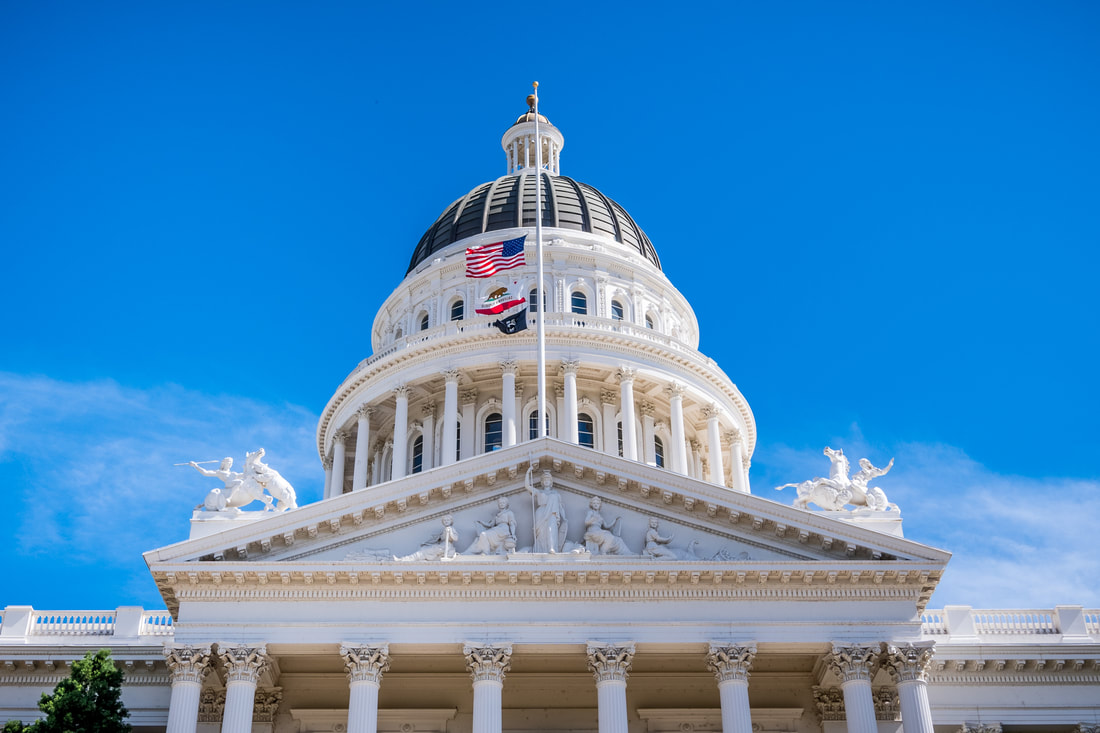|
Last Saturday was the deadline for California Governor Gavin Newsom to either sign or veto the roughly 1,000 bills that made it to his desk. Below is a recap of some of the most notable employment bills that the Governor signed or vetoed.
Higher Minimum Wages Governor Newsom signed a pair of bills, AB 1228 and SB 525, that set higher minimum wages for workers in the fast food and healthcare industries. Under AB 1228, fast-wood workers’ minimum wage will be bumped to $20 an hour in April. Hundreds of thousands of healthcare workers in the state will see their minimum wage eventually increased to $25 an hour under SB 525. Employers Lose a Delay Tactic SB 365 allows employment lawsuit proceedings to move forward, rather than pause, when defendants appeal orders denying a request to compel arbitration. Governor Newsom signed the bill, effectively undercutting a tactic that sometimes-allowed employers to delay cases for years at a time. More Paid Sick Days Starting next year, California’s workers will be entitled to at least five days of paid sick leave, up from the current minimum of three days, as a result of Governor Newsom signing SB 616. Family Caregiver bill Nixed In a defeat for employees, the Governor vetoed AB 524, a bill that would have added “family caregiver status” to the list of protected characteristics that employers cannot consider when making employment decisions such as hiring and firing. No Unemployment Benefits while on Strike SB 799 would have allowed workers to collect unemployment insurance benefits while on strike. Governor Newsom vetoed the bill, citing the multi-billion-dollar debt that California’s unemployment insurance program incurred to keep benefits flowing during the pandemic. To see what other important employment bills were signed and vetoed by the Governor, click here.
0 Comments
San Bernardino Amazon workers walk off the job, demanding higher pay and improved working conditions8/18/2022  On Monday, August 15, dozens of San Bernardino Amazon warehouse workers at the company’s largest air freight facility on the West Coast walked off the job, seeking higher pay and safer working conditions. The work stoppage is the product of months of organizing by an independent group of warehouse workers called Inland Empire Amazon Workers United. The group has received organizing assistance from the Warehouse Worker Resource Center (WWRC) and Teamsters Local 1932, two local labor organizations. This past July, members of the independent warehouse workers group delivered a petition with more than 800 signatures to the air hub’s management. The petition outlined how average rent prices in San Bernardino would require a full-time Amazon air hub worker earning a starting wage of $17 an hour to pay roughly 75 percent of their monthly income post-taxes on rent. Workers at the San Bernardino facility have also expressed concern about brutal working conditions caused by excessive heat, especially during the summer months when temperatures at the airport regularly reach 95 degrees. The walkout is part of a broader wave of labor organizing campaigns across the country at Amazon warehouses. In April, employees at a massive Amazon warehouse in Staten Island voted by a wide margin to form a union, the first successful unionization attempt by Amazon workers in the company’s history. Since then, at least two other Amazon facilities have either held a vote to form a union or are nearing a vote. San Bernardino workers who participated in the stoppage on Monday don’t have immediate plans to file for a union election with the National Labor Relations Board, but said they would consider filing for a formal election in the future. Teukolsky Law stands in solidarity with the brave warehouse workers in San Bernardino who are willing to put their jobs on the line to improve working conditions and wages not only for themselves, but for all of their fellow workers. If you are an Amazon worker who has been treated unlawfully at work, contact Teukolsky Law today for a free consultation.  Though we are only three months into 2022, thousands of workers across the country have already taken significant steps towards securing improved working conditions, higher wages, and greater corporate commitments to their general well-being. Below are some organizing achievements by workers this year that we would like to take a moment to highlight: Amazon: On Friday, April 1, employees at a massive Amazon warehouse in Staten Island voted by a wide margin to form a union. The vote marked the first successful unionization attempt by Amazon workers in the company’s history. Some commentators view the vote as milestone event that might signal a turning point in workers’ organizing efforts against Amazon, a company many union leaders regard as an existential threat to labor standards. Starbucks. Since February of this year, seven Starbucks locations – two in Mesa, AZ, three in Buffalo, NY, one in Seattle, WA, and one in Knoxville, TN – have voted to unionize, bringing the total number locations that have voted to unionize to nine. Starbucks employees have cited low wages, lackluster benefits, staffing shortages, and unrealistic performance metrics as the main drivers for unionization. Since the first Starbucks locations voted to unionize in December 2021, approximately 160 Starbucks locations have filed petitions with the National Labor Relations Board to unionize. Chevron Corporation: In March, employees at a Chevron Corporation oil refinery in Richmond, CA went on strike. The strike came after the company’s contract with the United Steelworkers Local 5 union expired the previous month. Workers in Richmond are demanding higher wages and staffing improvements, both of which have become increasingly urgent as inflation soars and some Chevron employees feel obligated to work 70 hour weeks to make ends meet. Kellogg: After 1,400 Kellogg workers went on strike in 2021, workers at a Kellogg’s plant that makes Cheez-its won a new contract that included a 15 % wage increase. According to the workers’ union, the Retail, Wholesale and Department Store Union, it is the largest wage increase employees at the location have ever seen. Warrior Met Coal: Nearly 1,000 coal miners in Brookwood, AL, remain on strike in what has become one of the longest coal mine strikes in American history. The miners have been on strike since, April 1, 2021, and are demanding that their wages be restored to the levels they were at prior to Warrior Met Coal’s 2015 bankruptcy. They are also fighting for improved workplace protections, such as excused absences for family emergencies. Warrior Met Coal recently reported its most profitable quarter in three years and said it was hiring new workers during the strike. We commend the work of Union Organizers and employees who continue to work tirelessly towards a brighter future for workers. Even though the union membership rate declined in 2021, three months into 2022, the prospects for the American labor movement looks very bright.  From today until March 26, members of seven local grocery store unions across Southern California will vote to determine whether they will go on strike. The vote comes after negotiations between union leaders and the owners of Ralphs and Albertsons/Vons/ Pavilions failed to lead to a new contract with better wages and benefits for workers. The vote also comes after United Food and Commercial Workers Union (UFCW) locals filed unfair labor practice charges against the companies for interfering with employees for engaging in union activity and refusing to disclose information requested by the locals in order to bargain for their members’ contracts. Union leaders are fighting on behalf of approximately 60,000 Southern California grocery store workers to secure higher wages. Following a pandemic that led to a financial windfall for large grocery store chains, many workers still find themselves struggling to make ends meet, often making little more than the minimum wage and suffering from food insecurity as the cost of living in California continues to get more expensive. In addition to fighting for higher wages, union leaders are also working towards increasing the minimum number of hours that part-time workers can be scheduled and securing language that protects workers from being kept after their scheduled hours. Workers also want better safety for both workers and customers in terms of COVID protocols, and staffing increases to offset the shortages they faced during the pandemic. The results of the vote are expected to be announced on Sunday. The vote will not necessarily result in a strike, though it does give union leaders the right to call a strike if an agreement with grocery store companies cannot be reached. Teukolsky Law commends the brave and difficult work of UFCW and hopes to see an agreement advancing grocery workers’ well-being and dignity reached soon. |
AuthorLauren Teukolsky is the founder and owner of Teukolsky Law, A Professional Corporation. Archives
June 2024
Categories
All
|
Teukolsky Law, A Professional Corporation, represents clients throughout California. Ms. Teukolsky is admitted to practice in the State of California, as well as the United States Supreme Court, Ninth Circuit Court of Appeals, Northern District of California and Central District of California. Disclaimer.
Copyright © 2017
Copyright © 2017


 RSS Feed
RSS Feed